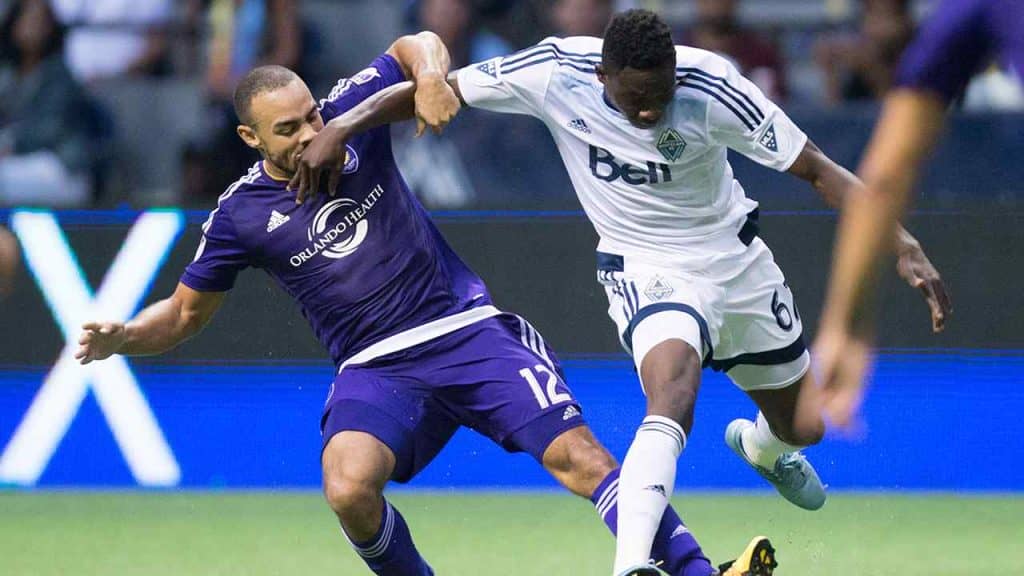
Your bright young soccer player will join a top youth soccer league. You want the best development environment and a sense of belonging in your league.
Understanding the fundamental differences between these two prominent leagues is vital for making an informed selection that will influence your child’s soccer future in youth soccer.
As we go, we’ll discuss MLS Next and ECNL’s organizational structure, player development strategy, advantages and downsides, cost, age eligibility, and college recruitment potential.
Our detailed analysis and accurate reporting will help you choose a path that meets your child’s goals and promotes teamwork as they play soccer.
Key Takeaways
- ECNL works with clubs throughout regions, whereas MLS Next develops homegrown players for professional opportunities.
- ECNL spends substantially on athletic and academic development, whereas MLS Next requires greater coaching licensing.
- MLS Next member clubs are centered in places with existing or potential MLS franchises. At the same time, ECNL has over 100 clubs countrywide and emphasizes player development at both the boys’ and girls’ levels.
- MLS Next and ECNL are great platforms to develop and display abilities, but they require financial commitments and travel.
Related: How Many Hours Of Soccer Practice Should You Have A Day?
A Brief Overview of MLS Next and ECNL

MLS Next and ECNL are groundbreaking young soccer initiatives that will change American sports.
Major League Soccer launched MLS Next to produce world-class players with professional coaching, premier facilities, and elite competition.
The Elite Clubs National League (ECNL) is a statewide junior soccer program that collaborates with club teams to provide high-level competition and player development for boys and girls.
If you love American soccer, you want these platforms to produce indigenous talent that can compete internationally.
Young players can enhance their skills while playing against top quality in MLS Next and ECNL.
Participating in either platform gives your youngster essential tools to develop their professional soccer potential.
MLS Next or ECNL depends on your child’s ambitions and circumstances, but they’ll be part of a movement to improve American soccer anyway.
Organizational Structure of MLS Next and ECNL
You’ll find that the organizational structures of these two leagues vary, offering unique experiences and opportunities for young soccer players.
MLS Next is directly associated with Major League Soccer (MLS) and maintains close relationships with North American professional clubs. This relationship helps identify talented players earlier and integrate them into club academies or professional clubs.
MLS Next also prioritizes domestic players because the same company runs it as the highest division of professional soccer in the US and Canada.
The Elite Clubs National League (ECNL) has its benefits and works independently from professional leagues. As an independent organization, ECNL can cooperate with clubs from different regions to establish a competitive youth soccer environment.
This exposes athletes to different coaching styles and competition levels and builds club relationships through showcases and competitions.
ECNL also prioritizes athletic and academic development for college-bound athletes. Depending on goals and preferences, both divisions offer fantastic chances for young soccer players.
Related: Is MLS Better Than Saudi League
Player Development Approach in MLS Next and ECNL

Understanding how MLS Next and the Elite Clubs National League (ECNL) develop players can assist young soccer players in choosing the most excellent fit for their goals.
Both leagues are great places to practice and show off, but they focus on player development differently.
MLS Next trains MLS players. It promotes clear pathways from development to professional soccer with solid links between MLS clubs’ academies and first teams.
High-quality coaching, tough matches against elite opponents. Exposure through showcases and scouting networks helps players flourish in the league.
ECNL prioritizes collegiate soccer scholarships and professional opportunities over competitive situations for exceptional players. This league offers its players academic help, leadership training, and community engagement.
Both leagues prioritize great coaching across all age ranges, while MLS Next demands higher license levels than ECNL coaches. This difference in licensing requirements can lead to varying degrees of technical knowledge among staff members at different clubs.
Finally, MLS Next’s member clubs are more concentrated in places with existing or potential MLS franchises, while ECNL has more than 100 clubs nationally.
Finding the right fit—pursuing a professional career through an MLS academy system or aiming for college scholarships while playing at top-notch ECNL clubs that foster holistic personal growth and athletic progress—is vital.
No matter where you belong, your passion for the game and desire to grow will drive your soccer success.
Pros and Cons of MLS Next
Navigating the world of youth soccer can be complex, and weighing the pros and cons of MLS Next is crucial to making an informed decision about your future in the sport. As a player or parent, understanding the benefits and drawbacks of this league will help you determine if it’s the right fit for your goals and aspirations.
| Pros | Cons |
|---|---|
| High-quality competition | Limited access for non-MLS clubs |
| Emphasis on player development | Geographic limitations |
| Pathway to professional soccer | Potential financial barriers |
MLS Next’s best North American players and high competition are its most enormous benefits. Top coaches, modern facilities, and cutting-edge sports science resources help the league develop players.
MLS Next also provides a direct route to professional soccer through Major League Soccer clubs.
However, MLS Next may have downsides. Due to its association with MLS teams, non-MLS clubs may find it less accessible.
This exclusivity may limit prospects for talented athletes outside these companies. Geographic barriers may also prevent distant club members from joining.
Finally, not all clubs offer scholarships or financial aid to make participation cheaper. Finally, analyzing these factors will help you determine if joining MLS Next is beneficial for your soccer career and sense of belonging in this competitive community.
Related: What Is The Difference between MLS And USL?
Pros and Cons of ECNL
To decide if the Elite Clubs National League (ECNL) is ideal for you, you must weigh its benefits and cons.
The ECNL, founded in 2009, develops boys and girls soccer players nationally. ECNL aims to “elevate the youth soccer experience” by providing elite coaching, competitive matches, and college scouting.
Joining an ECNL team is beneficial because professional coaches provide consistent training sessions. These instructors follow a systematic curriculum to help players develop their technical, tactical, and game awareness.
Participating in ECNL means competing against some of the best youth teams across different regions in the United States. This high-level competition pushes players out of their comfort zones. Exposes them to various playing styles, ultimately aiding their growth as athletes.
Due to its reputation for producing quality talent, college coaches frequently attend ECNL events in search of potential recruits. Being part of an ECNL team increases a player’s visibility—chances of earning a scholarship or a spot on a collegiate roster.
However, there are also drawbacks to considering joining an ECNL program. The travel demands can be extensive and costly for families. As games often take place across multiple states throughout each season.
Additionally, while many clubs strive for inclusivity within their programs, spots on these highly competitive teams are limited. Leaving talented players potentially feel excluded from this prestigious platform.
As with any decision related to pursuing excellence in soccer, it’s crucial to weigh all aspects before making your choice.
Reflecting upon what matters most—coaching quality or college exposure—will help you determine if ECNL is the perfect league to support your soccer aspirations and foster a sense of belonging.
Cost of Participation in MLS Next and ECNL

So, you’re ready to leap into elite youth soccer, but what about the costs associated with MLS Next and ECNL participation?
Both leagues offer high-quality soccer experiences that can prepare young players for a future on the pitch. But they also come with financial commitments.
It’s essential to understand these costs so you can decide which league is the best fit for your family’s budget and goals.
The cost of participating in MLS Next and ECNL can vary depending on several factors, such as location, club fees, travel expenses, and more.
For both leagues, it’s common to see annual club fees ranging from $2,000 to $5,000 or more. These costs typically cover coaching fees, field usage, administrative expenses, and league registration.
However, remember that this doesn’t include additional charges like uniforms or tournament entry fees.
Travel expenses are another significant factor when considering which league to join since both MLS Next and ECNL require teams to attend games across multiple states throughout the season.
Depending on how far your team travels for matches or tournaments, this will directly impact your overall cost of participation.
Before committing to either program, sift through these costs. However, investing in an elite youth soccer program like MLS Next or ECNL might provide significant possibilities for growth on and off the field—something any true soccer fan would be proud of!
What age groups are eligible for MLS Next and ECNL?
It’s essential to know the ropes regarding age groups eligible for these elite soccer leagues as they’re designed for specific stages in a young player’s development.
Both MLS Next and ECNL cater to different youth age groups. They ensure that players receive the appropriate competition and training for their growth.
Understanding which age groups each league covers can help you determine if your child is ready to participate in one of these prestigious programs.
MLS Next focuses on male players within the U13 to U19 age range, while ECNL provides opportunities for both male and female athletes across various age categories. Here’s a breakdown of the age groups supported by each league:
- MLS Next: Boys’ teams from U13 to U19
- ECNL Boys: Teams from U14 to U19
- ECNL Girls: Teams from U13 to U19
As you consider enrolling your child in either MLS Next or ECNL, remember that these leagues are tailored towards severe soccer players with aspirations of playing at higher levels, whether collegiate or professional.
The commitment required will undoubtedly be substantial, but so too will be the potential rewards: invaluable experiences, lifelong friendships, and an unmatched sense of belonging amongst fellow soccer enthusiasts driven by a shared passion for the beautiful game.
Related: Top 7 Best Youth Soccer Clubs In Arizona
How does college recruitment differ between MLS Next and ECNL?

Navigating the college recruitment process can be quite a journey for young soccer players in MLS Next and ECNL as they showcase their skills and dedication to potential collegiate coaches.
While both platforms offer unique opportunities for athletes seeking to play at the collegiate level, there are some critical differences in how each league approaches college recruitment.
In MLS Next, there is a stronger emphasis on developing professional-level talent, with many elite players aiming to join Major League Soccer (MLS) clubs directly out of high school or after attending college for only a short time.
However, collegiate opportunities are still limited; many top-tier colleges actively recruit from MLS Next teams.
On the other hand, ECNL focuses more heavily on providing its players with exposure to college coaches through various events such as showcases and tournaments.
This offers an excellent opportunity for all levels of players to get noticed by a wide range of colleges across different divisions.
| MLS Next | ECNL | |
|---|---|---|
| Focus | Developing professional-level talent | Exposure to college coaches |
| Recruitment | Top-tier colleges | Wide range of colleges & divisions |
| Events | Fewer specific showcase events | Regular showcase events & tournaments |
| Player Profile | Elite players | All levels of skill & ambition |
Ultimately, your choice between MLS Next and ECNL will depend on your goals and soccer aspirations.
Suppose you aim for a professional career or seek recruitment from top-tier colleges. In that case, MLS Next may be a better fit due to its strong focus on developing high-level talent.
However, if you’re looking for broader exposure across various divisions within collegiate soccer and value participating in numerous showcases where you’ll have ample opportunities to interact with college coaches directly, ECNL could be your ideal choice.
Remember that success in soccer requires immense skill, an unwavering sense of belonging, and passion for the game.



